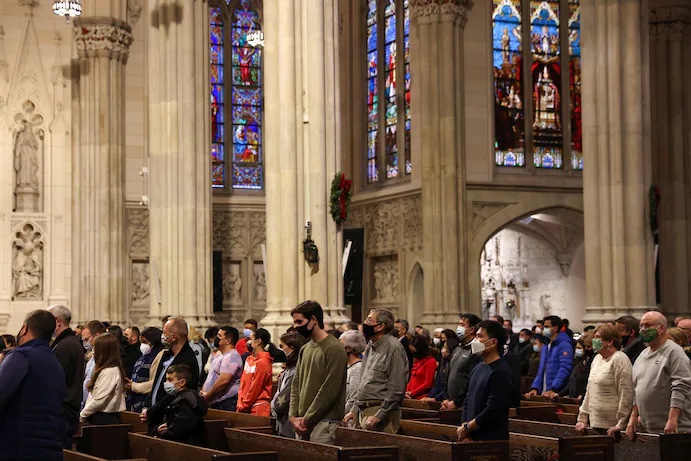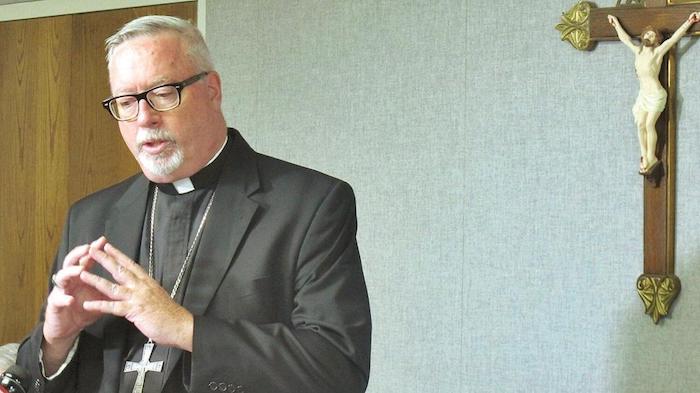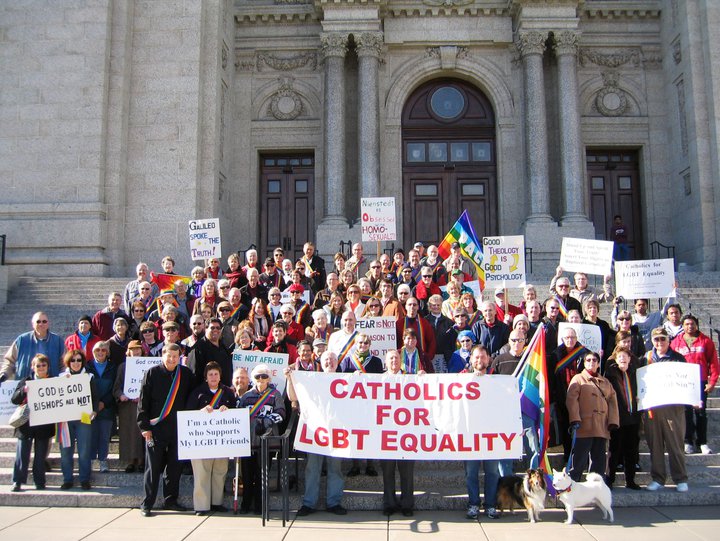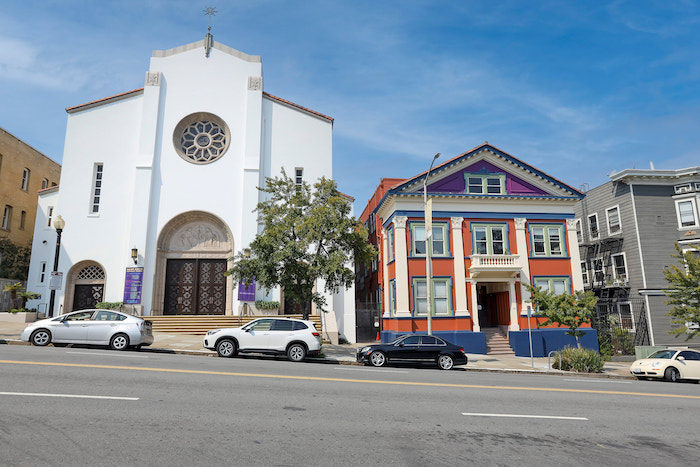
By Michael J. O’Loughlin
Most Catholics usually spend the weeks before Christmas preparing to open church doors to anyone looking to mark the birth of Jesus. But this year, with news that a Catholic diocese in Michigan may bar gay and transgender people from participating in sacraments, LGBTQ Catholics everywhere are wondering, yet again, whether we are welcome.
The Diocese of Marquette says that the policy, which could deny parishioners rites such as baptism and Communion, is simply meant to reinforce existing church teaching, and that queer people should still be treated with “dignity and respect.” But what it risks reinforcing is the decision of LGBTQ people, and their families, who choose to leave. As a gay Catholic, it’s heartbreaking to think of what both the church, and all who benefit from Catholic ministries, will lose.
When I read the diocese’s policy, my mind raced to one of the accounts in my book, which profiles dozens of Catholics who took on stigma and shame to fight for people living with HIV at the height of the crisis. The transformation of Most Holy Redeemer Church, situated in the heart of San Francisco’s gay village, from a mausoleum into a partner in the fight against AIDS was due to the tenacity of LGBTQ Catholics and allies who saw in Scripture a commandment to extend mercy to all.
In the 1950s and ’60s, the parish was full of young families. But by the 1980s, the neighborhood had become a vibrant destination for young gay men — a remaking that had hollowed out Most Holy Redeemer.
Cliff Morrison, a gay parishioner and nurse who would eventually help establish 5B, the famed AIDS ward at San Francisco General Hospital, met with the pastor, Father Tony McGuire. He laid out a proposal: The neighborhood was bursting with the new arrivals, the majority of whom weren’t affiliated with any house of worship. “Most of these guys, they moved here from the Midwest and the South, and a lot of them are Catholic,” he said. “Why don’t we invite them back?”
So a team of parishioners created the “Come Home for Christmas” campaign. Young gay men who sought to add a dose of spirituality to the Christmas season worshiped alongside the remaining older parishioners — the “gays and the grays,” as Father Tony put it.
Thomas Ellerby, who was diagnosed with HIV in 1989, was part of Most Holy Redeemer’s holiday crew. He signed up for the parish’s “buddy program” when he became too sick to cook or do laundry. He attended the parish’s Christmas parties — elaborate affairs with ice sculptures, piles of decadent canapes and, given neighborhood demographics, a fair share of drag queens.
“That was the most fantastic escape from what was going on around us,” Ellerby said in an interview. For him, a gay Black man living with HIV in the Castro, the Catholic Church was a break from the barrage of discrimination, prejudice and heartbreak he faced each day.
The Vatican promulgated policies hostile toward LGBTQ people in the 1980s — ones similar to the Marquette proposal. But local church leaders in San Francisco tried to soften those messages so all Catholics would feel welcome. Had they not, ministries that touched countless lives in San Francisco would never have borne fruit.
And it wasn’t a one-way street, with only the LGBTQ community benefiting. Most Holy Redeemer itself was reinvigorated by LGBTQ Catholics, and its longtime parishioners — mostly older and straight — understood in new ways what it meant to follow Jesus’ command to love one another.
Today’s church, with LGBTQ people routinely fired from affiliated institutions and the Vatican still employing harsh language toward same-sex relationships, can feel far from Most Holy Redeemer’s uncommon example. It’s true that Pope Francis has reached out to LGBTQ Catholics and those who minister to them, but sadly he’s the exception, not the rule. Overemphasizing parts of church teaching that condemn homosexuality at the expense of parts that call for love and respect is too common.
That’s why such small, unexpected kindnesses from the church can go such a long way — and why actions such as the Marquette diocese’s feel extra alienating. And each decision affects not only the relatively small percentage of LGBTQ Catholics but also their families and friends, coworkers and neighbors — anyone who loves them.
To Ellerby, Most Holy Redeemer was simply living out the Gospel. “They served the community,” he said. “It just so happened to be a gay community that was ground zero for HIV and AIDS. The parish was in the business of saving souls and saving lives.”
Complete Article ↪HERE↩!




